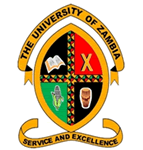 KEY PERSONNEL: Dr. Catherine Ngoma, Co-PI; Dr. Selestine Nzala, Co-PI, Ms. Maureen Makoleka, Co-PD and Co-Training Coordinator; Ms. Ruth Wahila, Co-PD and Co-Training Coordinator; Kennedy Siamutondo, eLearning Coordinator; Rhoidah Hamweene, Finance Administrator
KEY PERSONNEL: Dr. Catherine Ngoma, Co-PI; Dr. Selestine Nzala, Co-PI, Ms. Maureen Makoleka, Co-PD and Co-Training Coordinator; Ms. Ruth Wahila, Co-PD and Co-Training Coordinator; Kennedy Siamutondo, eLearning Coordinator; Rhoidah Hamweene, Finance Administrator
PROJECT TITLE: STRIPE HIV-UNZA
PROJECT YEAR 1 RECAP: In the first year, the University of Zambia Schools of Medicine, Nursing Sciences, Public Health, and Health Sciences collaborated to train nursing midwifery students, medical students, pharmacy students and biomedical students with the aim to increase the capacity of these professionals to provide high quality HIV care using an interprofessional team-based approach. In all, 26 facilitators held 2 workshops to train 119 pre-service learners.
PROJECT YEAR 2 SUMMARY: Two three-day Virtual Workshops were facilitated via Zoom by 10 facilitators. In the first workshop, 108 interprofessional pre-service learners from partner schools (see training partners) participated, and in the second workshop, 73 working health professionals were drawn from hospitals serving Lusaka and Chongwe districts in Lusaka Province (see participating clinical sites).
MAIN ACCOMPLISHMENTS
- Despite the truncated project period due to a prolonged COVID surge, the project team succeeded in training 183 of its original 200 trainee target (91%).
- Preliminary evaluation results reveal most learners are using the STRIPE HIV training resources as reference materials as they execute their work.
CHALLENGES AND SOLUTIONS
- The original scope was to utilize the Online Training format (with asynchronous activities) for working health professionals; this would have extended training over several weeks. However, the project start had to be delayed until the end of the project period (July-August) to contend with Zambia’s severe COVID-19 third wave from April to June 2021. As a result, the training for working health professionals was offered as a Virtual Workshop over a shorter time period.
- Although eLearning enabled a greater number of learners to be reached when compared to Year 1, there was greater disparity in access to training due to variable internet connectivity. Many health care professionals, especially in rural areas, had a challenge with accessing internet and needed to be trained on how to use Zoom prior to the training. In addition, learners reported the funds to purchase data were inadequate to participate fully.
TRAINING PARTNERS
Pre-service learners were recruited from:
- University of Zambia School of Nursing Sciences
- University of Zambia School of Medicine
- University of Zambia School of Health Sciences
- Lusaka Medical Apex School of Nursing Midwifery
- Lusaka Medical Apex School of Pharmacy
PARTICIPATING CINICAL SITES
Post-graduate learners were recruited from the following hospitals, all of which are PEPFAR-supported in Lusaka province:
- University Teaching Hospitals (Lusaka District)
- Adult Center of Excellence
- Paediatric Center of Excellence
- Maternal Newborn Hospital
- Chilenje Level 1 Hospital (Lusaka District)
- Chongwe District Hospital
- Levy Mwanawasa Teaching Hospital (Lusaka District)
IMPLEMENTATION
- Training cohorts: 2
- Facilitators: 10
|
Profession |
Years of experience |
Gender |
Teaching experience |
||||
|
Medical |
2 |
0-5 years |
2 |
Male |
3 |
HIV educator |
0 |
|
Nursing/Midwifery |
7 |
6-10 years |
5 |
Female |
7 |
Non-HIV educator |
10 |
|
Laboratory |
1 |
> 11 years |
3 |
Other |
0 |
||
- Learners: 181
|
Medical |
Nursing/Midwifery |
Pharmacy |
Laboratory |
Other |
Total |
|
|
Preservice |
20 |
43 |
25 |
20 |
0 |
108 |
|
Postgraduate < 12 months |
4 |
42 |
10 |
11 |
6 |
73 |
|
Postgraduate > 12 months |
0 |
0 |
0 |
0 |
0 |
0 |
|
TOTAL |
24 |
85 |
35 |
31 |
6 |
181 |
|
Gender |
|
|
Male |
65 |
|
Female |
115 |
INNOVATING HIV TRAINING DURING COVID-19: The COVID-19 pandemic disrupted face-to-face training sessions. In response, training sessions were delivered virtually over Zoom.
BROADER IMPACT:
Upon returning to work, in-service learners were requested to debrief their supervisors and other clinical team members on what they learned during the STRIPE HIV training, thus there is an expected diffusion of learning effect.
Following the response of STRIPE HIV eLearning, the School of Nursing Sciences has adopted an interprofessional education approach and has revised its HIV/AIDS curricula using the STRIPE HIV teaching and learning resources. All lecturers and students in the school have access to STRIPE HIV materials. Zoom has also been adopted as a teaching mode and partner institutions and clinical sites are also now using Zoom for meetings.







